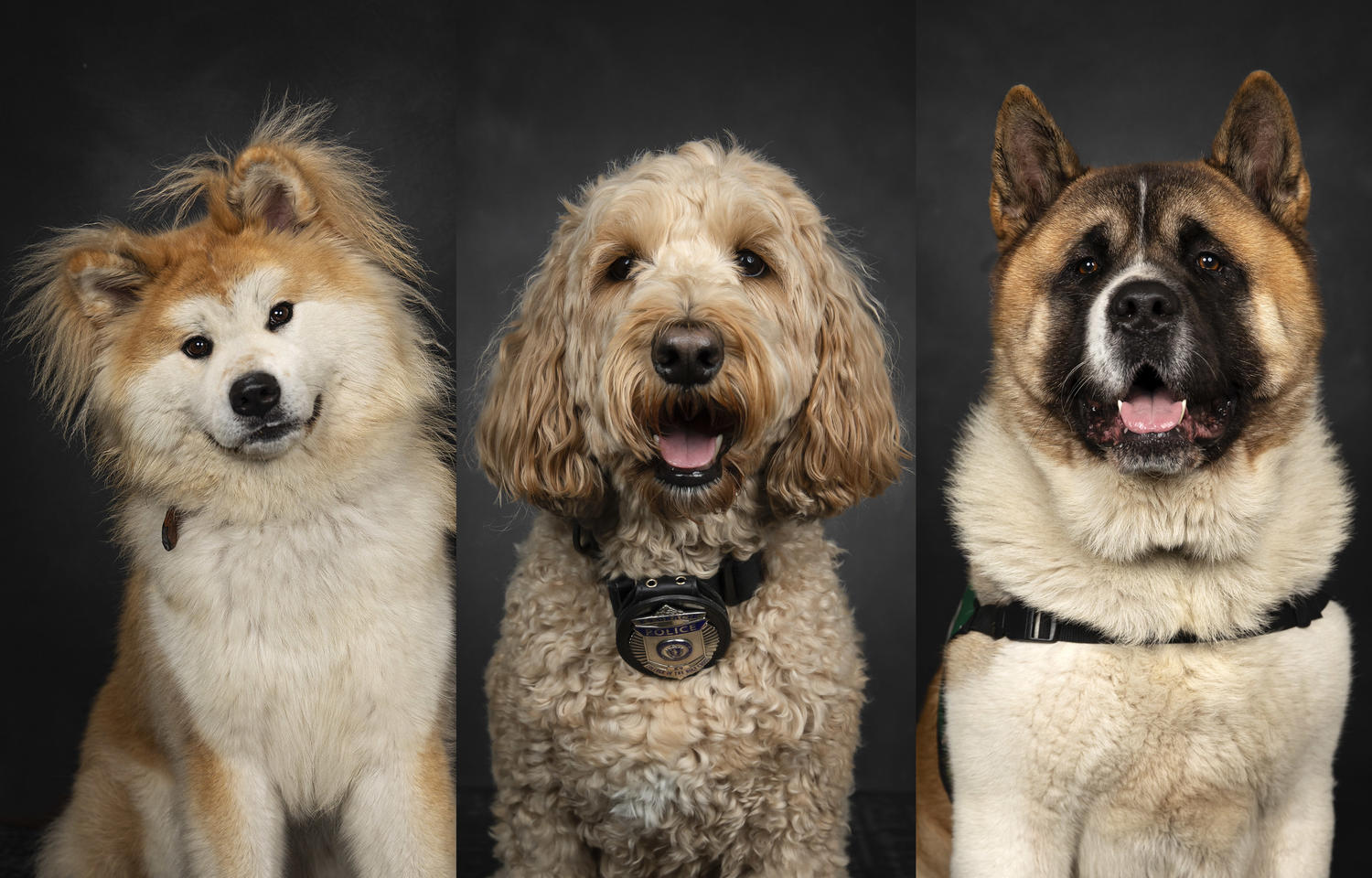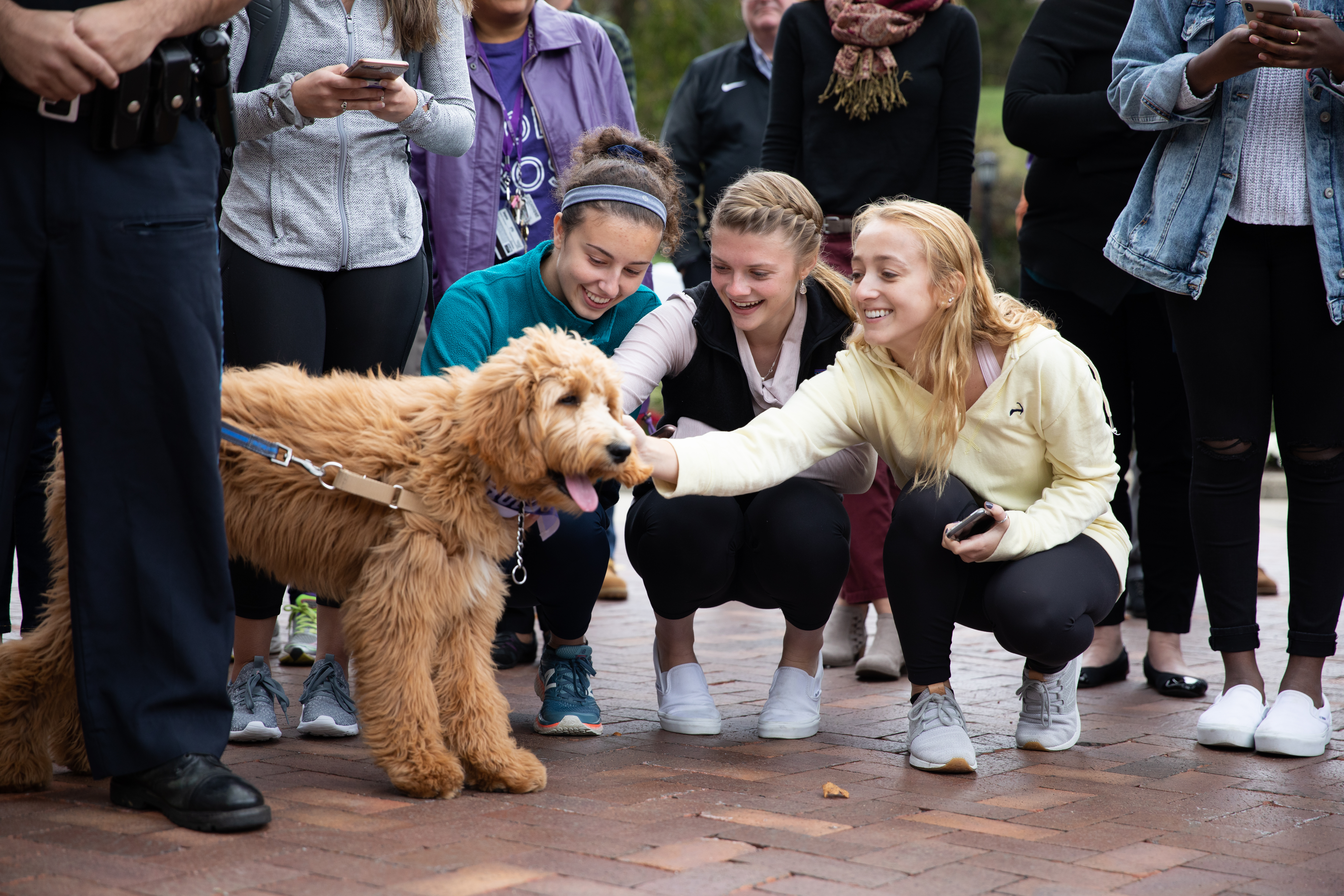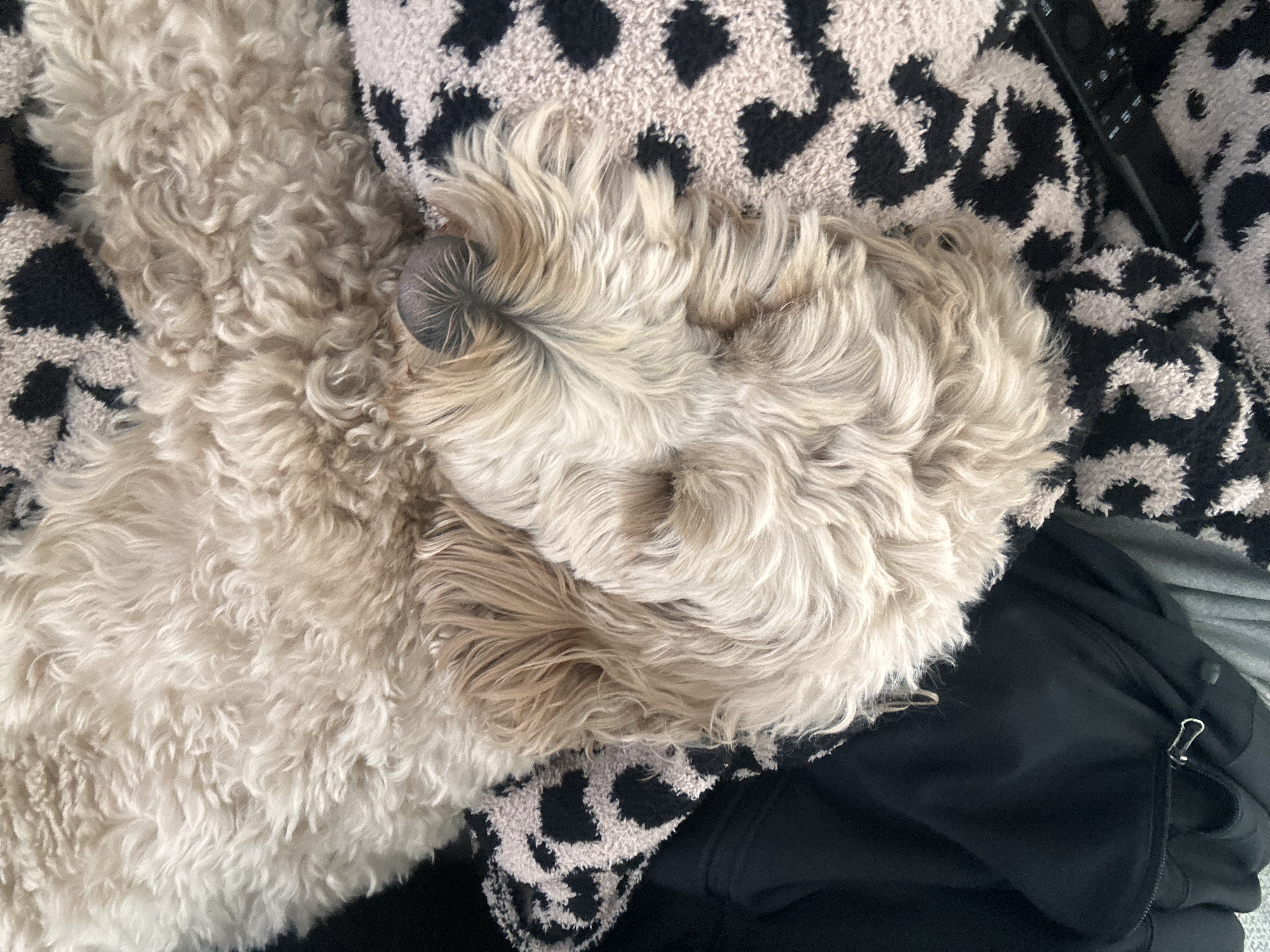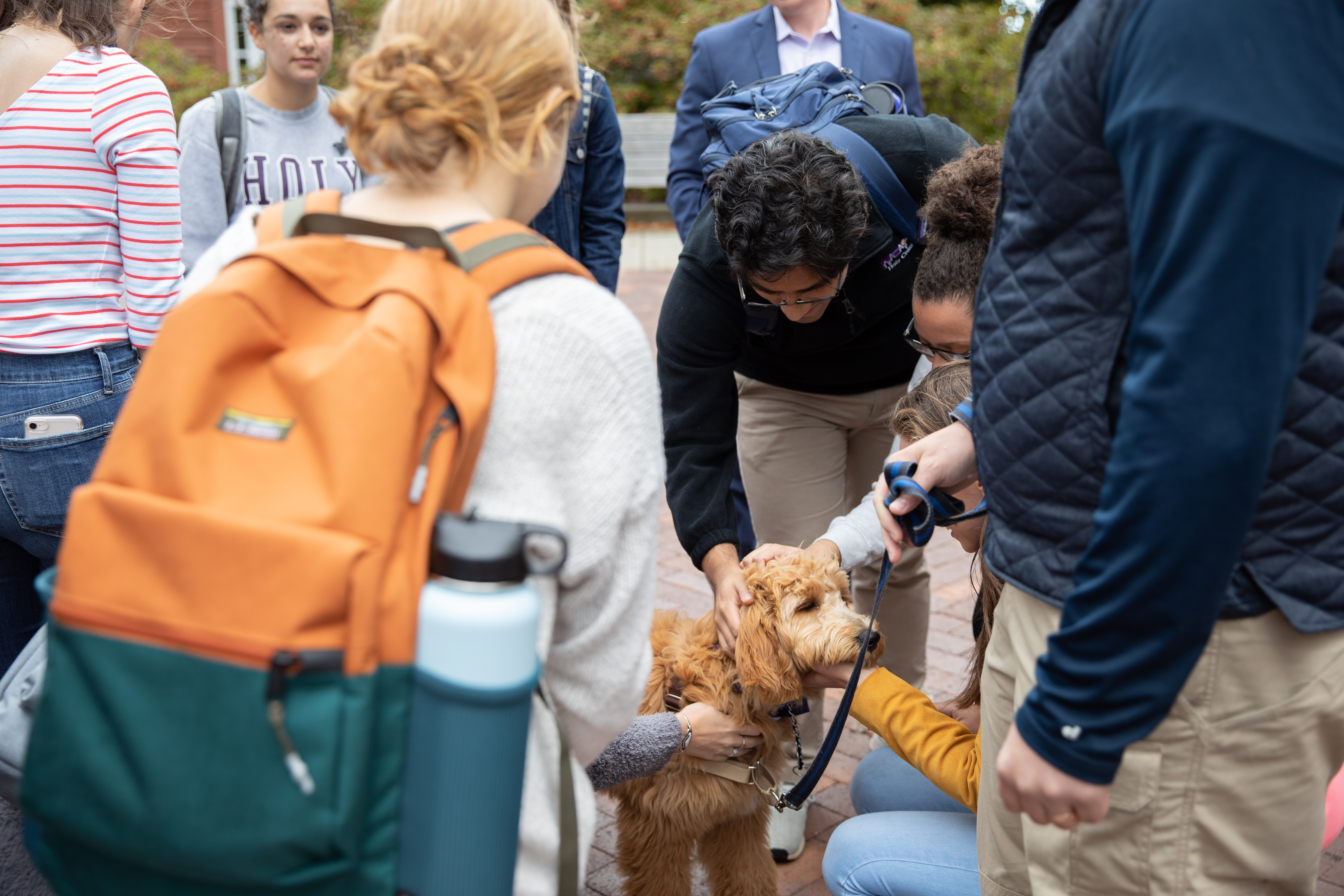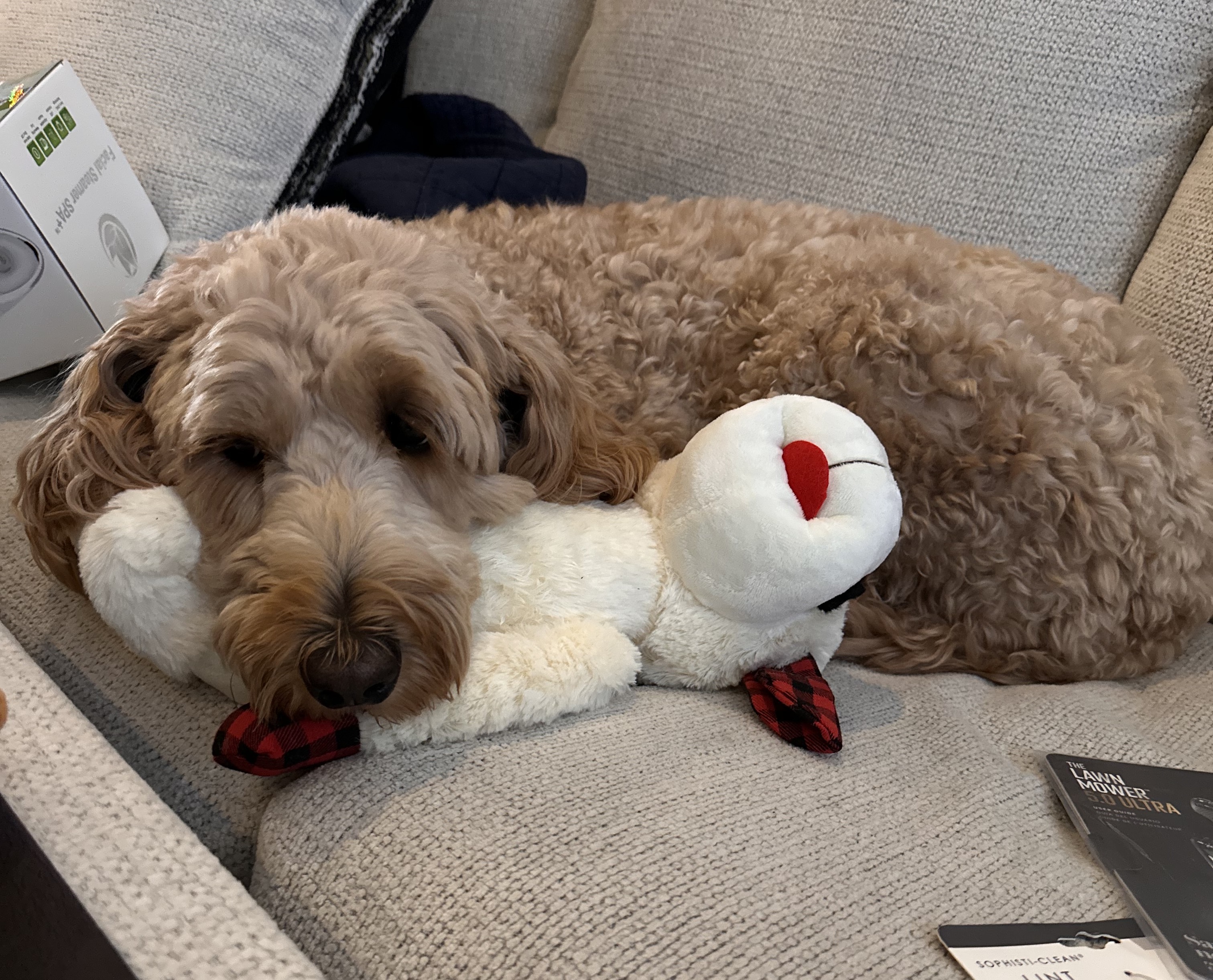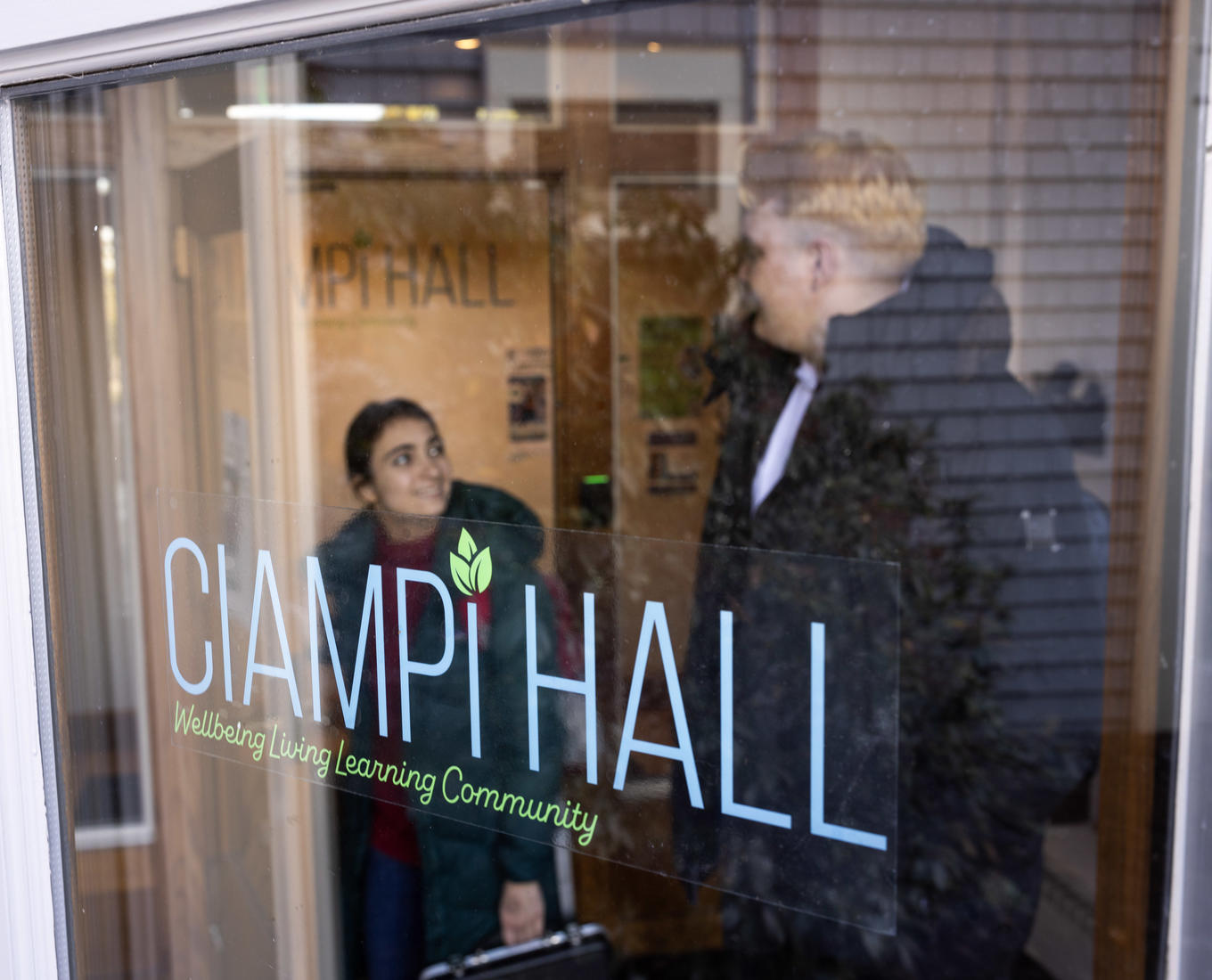According to the American Kennel Club, a therapy dog is trained to be consistent in inconsistent environments and, unlike service dogs, to interact with a variety of people instead of solely their handler. They volunteer in hospitals, nursing homes, workplaces and schools, with a primary goal of providing comfort, affection and stress relief.
Kim O'Neil on why she chose Akitas for therapy dogs and also why they aren't the breed for everyone.
“Therapy dogs are another tool in the tool box. When a dog walks in, most of the time the light comes back in the person and they breathe a little easier. The dogs are a bridge to any other resources someone needs,” O’Neil said.
Outside of their work at Holy Cross, Gracie and Tomo also lend their skills to assist people and communities.
O’Neil, who works per diem with the Worcester Police Department as a 911 dispatcher, is part of a national K9 crisis response team. Her dogs visit prisons to work with inmates. Tomo supports people in recovery and comforts hospice clients. Tomo’s most recent out-of-state assignment had him providing comfort to grieving residents in Lewiston, Maine, during a community vigil after an October 2023 mass shooting.
“Doing this work is near and dear to my heart,” O’Neil said.
Gracie also partners with other police departments in the city and communities around the College.
“We can see people at some of the most traumatic times in their lives. They are closed off and don’t want to talk about it in the moment. I’ll ask them if they like dogs and if they say yes, I’ll bring Gracie in,” Salerno said. “When they see her there is a shift. They don’t focus on me or where they are. They’re talking to Gracie and letting their emotions go as we work through the process to determine what resources they need and how to proceed.”
While their work is serious, it’s not always emotionally and mentally heavy. Twice a week Gracie visits with elementary school students in Auburn who are working on reading comprehension and communication skills. In another area school district, Gracie visits with special needs students to provide a calming presence. She is a regular at community engagement events in Worcester, from the animal cruiser parade to Why Me, Sherry’s House – a home for families with children in active treatment for cancer — to collecting toys from the city giving tree to benefit Worcester Public School children.
“She’s my partner and part of my family. The way people actively engage with me because I have Gracie with me is one of the main reasons I got into law enforcement,” he said.
